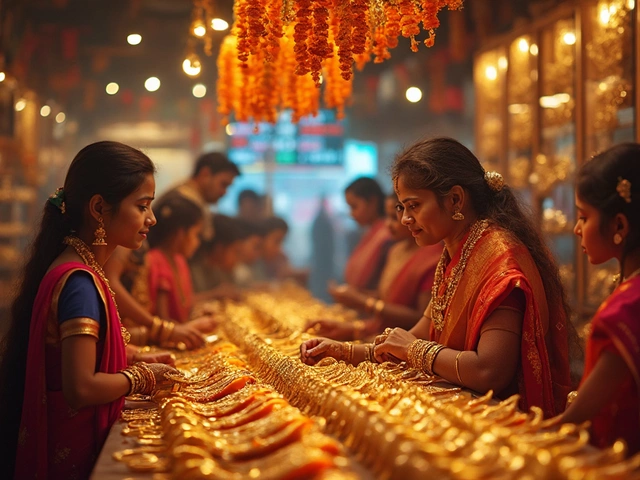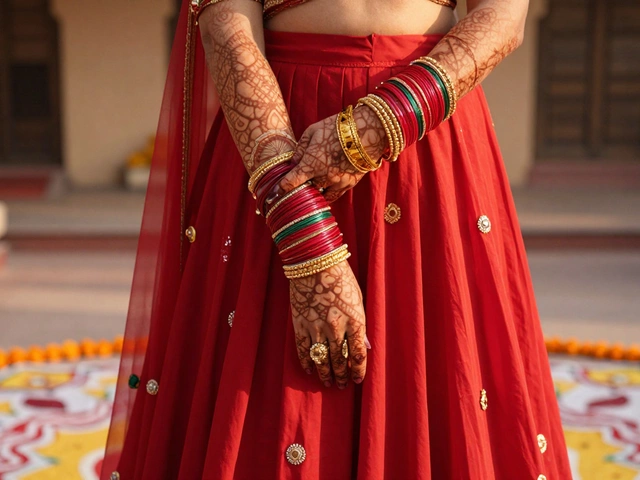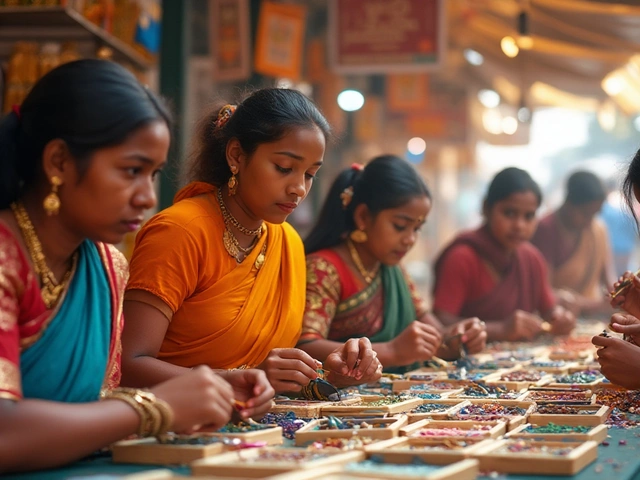Sikhs and Jewellery: What You Need to Know
If you’re curious about Sikh jewellery, you’re in the right spot. Sikh culture has a handful of pieces that mean a lot and look great too. The most recognizable ones are the simple steel kara bracelet and the bright turban pin. Both are worn daily and at special events, so they’re built to last and to fit comfortably.
Key Pieces and Their Meaning
The kara is a solid steel band that never opens. It reminds the wearer of an unbreakable connection to the divine. Because it’s made of steel, it stays shiny without much upkeep. Turban pins, called pagri pins, come in gold, silver, or enamel and help hold the turban in place. They also let you add a personal touch—some families pass down a special pin for generations.
Other popular items include the kamarband (waist belt) and simple gold or silver rings. While they aren’t required by religion, many Sikhs wear them to celebrate festivals or wedding ceremonies. Each piece often carries a story, whether it’s a family heirloom or a souvenir from a trip.
Buying Tips for Authentic Sikh Jewellery
When you shop online or in a store, look for clear hallmarks on gold and silver items. For steel pieces, a smooth finish without rust spots is a good sign. Trusted sellers like RH Jewellers list the material, weight, and any certifications right up front, so you can compare options easily.
Think about how you’ll wear the item. A heavy gold kara might feel uncomfortable if you plan to wear it all day. In that case, a lighter steel or stainless‑steel version works better. Also, check the clasp on bracelets—solid bangles are traditional, but a hinged clasp can make putting them on faster.
Price matters, too. Steel bangles are usually budget‑friendly, while gold or silver pieces can vary a lot. If you’re looking for a piece that holds value, gold rings and necklaces are the safest bets. Silver can be a great middle ground—pretty, durable, and less pricey than gold.
Before you finalize a purchase, ask the seller about return policies and warranty. A good return window lets you try the jewellery at home and make sure it feels right.
Taking care of Sikh jewellery is simple. Steel bracelets only need a soft cloth wipe to stay bright. Gold and silver pieces benefit from regular polishing with a non‑abrasive cleaner. Store each item separately to avoid scratches, especially if you have both gold and silver pieces in the same box.
Whether you’re buying your first kara or adding a new turban pin to the collection, the right piece should feel comfortable and meaningful. Keep these tips in mind, and you’ll find something that respects tradition while fitting your style.
Why Sikhs Carry a Kirpan: Understanding its Religious and Cultural Significance
The Kirpan, a ceremonial curved dagger, holds profound significance in Sikhism. It symbolizes courage, self-defense, and a commitment to social justice. Learn about its historical roots, spiritual meaning, and everyday practice among Sikhs, as well as the challenges they face in modern society. Offering insights into its cultural and religious aspects, this article unpacks why carrying a Kirpan is not only a choice but a cherished tradition.
Why Sikhs Carry a Kirpan: Understanding Its Religious Importance
The kirpan is more than just a ceremonial dagger for Sikhs; it symbolizes deep religious and cultural meanings. This article explores why carrying a kirpan is significant in the Sikh faith, delving into its historical roots and how it is both a duty and a reminder of the values Sikhs cherish. Understanding this tradition opens a broader perspective on Sikhism and its practices.






